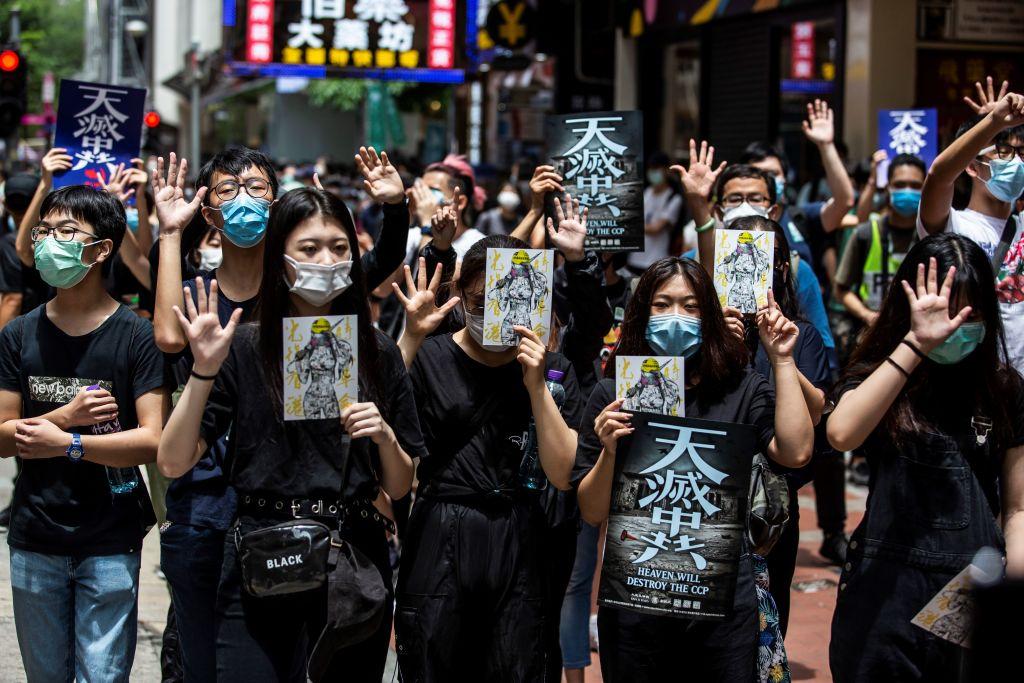Hong Kong and Chinese state-run media have resorted to strongly worded rhetoric against the Trump administration in response to the president’s decision on Friday to rewrite ties with the former British colony.
Trump’s decisions came after Beijing adopted a national security law for Hong Kong on Thursday, which would grant Beijing’s security apparatus the ability to operate in the Chinese-ruled city. Among the measures announced by Trump were revoking Hong Kong’s special trading status with the United States and imposing sanctions on Hong Kong and Chinese officials responsible for “directly or indirectly involved in eroding Hong Kong’s autonomy.”





